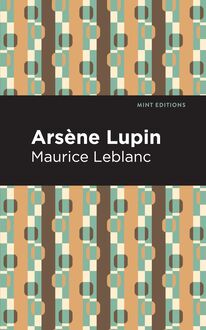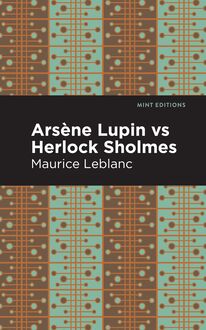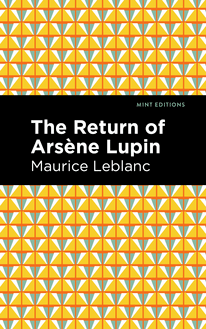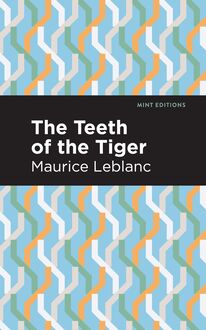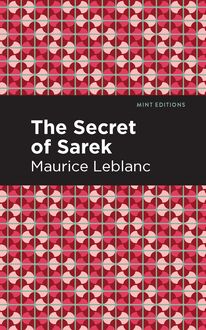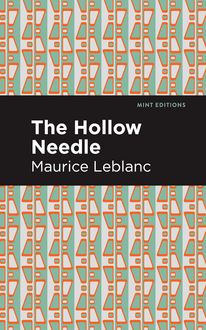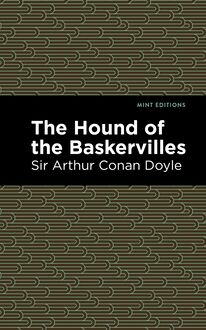-
 Univers
Univers
-
 Ebooks
Ebooks
-
 Livres audio
Livres audio
-
 Presse
Presse
-
 Podcasts
Podcasts
-
 BD
BD
-
 Documents
Documents
-
- Cours
- Révisions
- Ressources pédagogiques
- Sciences de l’éducation
- Manuels scolaires
- Langues
- Travaux de classe
- Annales de BEP
- Etudes supérieures
- Maternelle et primaire
- Fiches de lecture
- Orientation scolaire
- Méthodologie
- Corrigés de devoir
- Annales d’examens et concours
- Annales du bac
- Annales du brevet
- Rapports de stage
La lecture à portée de main
Vous pourrez modifier la taille du texte de cet ouvrage
Découvre YouScribe en t'inscrivant gratuitement
Je m'inscrisDécouvre YouScribe en t'inscrivant gratuitement
Je m'inscrisEn savoir plus
Vous pourrez modifier la taille du texte de cet ouvrage
En savoir plus

Description
Madame Midas (1888) is a mystery novel by Fergus Hume. Although not as successful as The Mystery of a Hansom Cab (1886), an immediate bestseller for Hume, Madame Midas is a gripping novel with forbidden romance and a tightly wound mystery worthy of the best of Victorian fiction. From an author whose work inspired Arthur Conan Doyle, Madame Midas is a story of fortune and loss set in the shadow of Australia’s nineteenth century gold rush.
In the mid-nineteenth century, Robert Curtis—along with countless other desperate and adventurous men—journeyed to Australia in search of fortune. Having established a successful mine in Ballarat, Curtis settled in Melbourne, where he married and had a daughter. In her youth, Miss Curtis was the talk of the town, and though she could have chosen any man for her husband, she found herself attracted to Mr. Villiers, a charming-yet-suspicious gentleman. Not long after their wedding, his intentions become all too clear, and soon his gambling threatens to erase the Curtis fortune. Outraged and disgraced, Mrs. Villiers flees to Ballarat, where she turns her attention to managing her father’s mine. Known to the local people as Madame Midas, she maintains a hard exterior in order not only to hide the truth of her past, but to guard herself from the cruelty of men. When a pair of escaped prisoners lands on the nearby shore, however, her newfound security faces a formidable threat. Madame Midas is a tale of love lost and found, of violence and greed in a country built on shallow, unstable foundations.
With a beautifully designed cover and professionally typeset manuscript, this edition of Fergus Hume’s Madame Midas is a classic of Australian mystery and detective fiction reimagined for modern readers.
Sujets
Informations
| Publié par | Mint Editions |
| Date de parution | 09 mars 2021 |
| Nombre de lectures | 0 |
| EAN13 | 9781513278827 |
| Langue | English |
| Poids de l'ouvrage | 1 Mo |
Informations légales : prix de location à la page 0,0500€. Cette information est donnée uniquement à titre indicatif conformément à la législation en vigueur.
Extrait
Madame Midas
Fergus Hume
Madame Midas was first published in 1888.
This edition published by Mint Editions 2021.
ISBN 9781513278360 | E-ISBN 9781513278827
Published by Mint Editions®
minteditionbooks.com
Publishing Director: Jennifer Newens
Design & Production: Rachel Lopez Metzger
Project Manager: Micaela Clark
Typesetting: Westchester Publishing Services
C ONTENTS P ROLOGUE : C AST U P BY THE S EA P ART I I. T HE P ACTOLUS C LAIM II. S LIVERS III. M ADAME M IDAS AT H OME IV. T HE G OOD S AMARITAN V. M AMMON ’ S T REASURE H OUSE VI. K ITTY VII. M R . V ILLIERS P AYS A V ISIT VIII. M ADAME M IDAS S TRIKES “I LE ” IX. L OVE ’ S Y OUNG D REAM X. F RIENDS IN C OUNCIL XI. T HEODORE W OPPLES , A CTOR XII. H IGHWAY R OBBERY XIII. A G LIMPSE OF B OHEMIA XIV. A M YSTERIOUS D ISAPPEARANCE XV. S LIVERS IN S EARCH OF E VIDENCE XVI. M C I NTOSH S PEAKS H IS M IND XVII. T HE B EST OF F RIENDS M UST P ART XVIII. M. V ANDELOUP IS U NJUSTLY S USPECTED XIX. T HE D EVIL ’ S L EAD P ART II I. T EMPUS F UGIT II. D ISENCHANTMENT III. M. V ANDELOUP H EARS S OMETHING TO HIS A DVANTAGE IV. T HE C ASE OF A DELE B LONDET V. T HE K EY OF THE S TREET VI. O N C HANGE VII. T HE O PULENCE OF M ADAME M IDAS VIII. M. V ANDELOUP IS S URPRISED IX. A P ROFESSIONAL P HILANTHROPIST X. I N THE F ERNERY XI. T HE V ISION OF M ISS K ITTY M ARCHURST XII. A S TARTLING D ISCOVERY XIII. D IAMOND C UT D IAMOND XIV. C IRCUMSTANTIAL E VIDENCE XV. K ISMET XVI. B E S URE T HY S IN W ILL F IND T HEE O UT E PILOGUE : T HE W AGES OF S IN
P ROLOGUE
Cast Up by the Sea
A wild bleak-looking coast, with huge water-worn promontories jutting out into the sea, daring the tempestuous fury of the waves, which dashed furiously in sheets of seething foam against the iron rocks. Two of these headlands ran out for a considerable distance, and at the base of each, ragged cruel-looking rocks stretched still further out into the ocean until they entirely disappeared beneath the heaving waste of waters, and only the sudden line of white foam every now and then streaking the dark green waves betrayed their treacherous presence to the idle eye. Between these two headlands there was about half a mile of yellow sandy beach on which the waves rolled with a dull roar, fringing the wet sands with many coloured wreaths of sea-weed and delicate shells. At the back the cliffs rose in a kind of semi-circle, black and precipitous, to the height of about a hundred feet, and flocks of white seagulls who had their nests therein were constantly circling round, or flying seaward with steadily expanded wings and discordant cries. At the top of these inhospitable-looking cliffs a line of pale green betrayed the presence of vegetation, and from thence it spread inland into vast-rolling pastures ending far away at the outskirts of the bush, above which could be seen giant mountains with snow-covered ranges. Over all this strange contrast of savage arid coast and peaceful upland there was a glaring red sky—not the delicate evanescent pink of an ordinary sunset—but a fierce angry crimson which turned the wet sands and dark expanse of ocean into the colour of blood. Far away westward, where the sun—a molten ball of fire—was sinking behind the snow-clad peaks, frowned long lines of gloomy clouds—like prison bars through which the sinking orb glowed fiercely. Rising from the east to the zenith of the sky was a huge black cloud bearing a curious resemblance to a gigantic hand, the long lean fingers of which were stretched threateningly out as if to grasp the land and drag it back into the lurid sea of blood; altogether a cruel, weird-looking scene, fantastic, unreal, and bizarre as one of Dore’s marvellous conceptions. Suddenly on the red waters there appeared a black speck, rising and falling with the restless waves, and ever drawing nearer and nearer to the gloomy cliffs and sandy beach. When within a quarter of a mile of the shore, the speck resolved itself into a boat, a mere shallop, painted a dingy white, and much battered by the waves as it tossed lightly on the crimson waters. It had one mast and a small sail all torn and patched, which by some miracle held together, and swelling out to the wind drew the boat nearer to the land. In this frail craft were two men, one of whom was kneeling in the prow of the boat shading his eyes from the sunlight with his hands and gazing eagerly at the cliffs, while the other sat in the centre with bowed head, in an attitude of sullen resignation, holding the straining sail by a stout rope twisted round his arm. Neither of them spoke a word till within a short distance of the beach, when the man at the look-out arose, tall and gaunt, and stretched out his hands to the inhospitable-looking coast with a harsh, exulting laugh.
“At last,” he cried, in a hoarse, strained voice, and in a foreign tongue; “freedom at last.”
The other man made no comment on this outburst of his companion, but kept his eyes steadfastly on the bottom of the boat, where lay a small barrel and a bag of mouldy biscuits, the remnants of their provisions on the voyage.
The man who had spoken evidently did not expect an answer from his companion, for he did not even turn his head to look at him, but stood with folded arms gazing eagerly ahead, until, with a sudden rush, the boat drove up high and dry on the shore, sending him head-over-heels into the wet sand. He struggled to his feet quickly, and, running up the beach a little way, turned to see how his companion had fared. The other had fallen into the sea, but had picked himself up, and was busily engaged in wringing the water from his coarse clothing. There was a smooth water-worn boulder on the beach, and, seeing this, the man who had spoken went up to it and sat down thereon, while his companion, evidently of a more practical turn of mind, collected the stale biscuits which had fallen out of the bag, then, taking the barrel carefully on his shoulder, walked up to where the other was sitting, and threw both biscuits and barrel at his feet.
He then flung himself wearily on the sand, and picking up a biscuit began to munch it steadily. The other drew a tin pannikin from the bosom of his shirt, and nodded his head towards the barrel, upon which the eater laid down his biscuit, and, taking up the barrel, drew the bung, and let a few drops of water trickle into the tin dish. The man on the boulder drank every drop, then threw the pannikin down on the sand, while his companion, who had exhausted the contents of the barrel, looked wolfishly at him. The other, however, did not take the slightest notice of his friend’s lowering looks, but began to eat a biscuit and look around him. There was a strong contrast between these two waifs of the sea which the ocean had just thrown up on the desolate coast. The man on the boulder was a tall, slightly-built young fellow, apparently about thirty years of age, with leonine masses of reddish-coloured hair, and a short, stubbly beard of the same tint. His face, pale and attenuated by famine, looked sharp and clever; and his eyes, forming a strong contrast to his hair, were quite black, with thin, delicately-drawn eyebrows above them. They scintillated with a peculiar light which, though not offensive, yet gave anyone looking at him an uncomfortable feeling of insecurity. The young man’s hands, though hardened and discoloured, were yet finely formed, while even the coarse, heavy boots he wore could not disguise the delicacy of his feet. He was dressed in a rough blue suit of clothes, all torn and much stained by sea water, and his head was covered with a red cap of wool-work which rested lightly on his tangled masses of hair. After a time he tossed aside the biscuit he was eating, and looked down at his companion with a cynical smile. The man at his feet was a rough, heavy-looking fellow, squarely and massively built, with black hair and a heavy beard of the same sombre hue. His hands were long and sinewy; his feet—which were bare—large and ungainly: and his whole appearance was that of a man in a low station of life. No one could have told the colour of his eyes, for he looked obstinately at the ground; and the expression of his face was so sullen and forbidding that altogether he appeared to be an exceedingly unpleasant individual. His companion eyed him for a short time in a cool, calculating manner, and then rose painfully to his feet.
“So,” he said rapidly in French, waving his hand towards the frowning cliffs, “so, my Pierre, we are in the land of promise; though I must confess”—with a disparaging shrug of the shoulders—“it certainly does not look very promising: still, we are on dry land, and that is something after tossing about so long in that stupid boat, with only a plank between us and death. Bah!”—with another expressive shrug—“why should I call it stupid? It has carried us all the way from New Caledonia, that hell upon earth, and landed us safely in what may turn out Paradise. We must not be ungrateful to the bridge that carried us over—eh, my friend?”
The man addressed as Pierre nodded an assent, then pointed towards the boat; the other looked up and saw that the tide had risen, and that the boat was drifting slowly away from the land.
“It goes,” he said coolly, “back again to its proper owner, I suppose. Well, let it. We have no further need of it, for, like Caesar, we have now crossed the Rubicon. We are no longer convicts from a French prison, my friend, but shipwrecked sailors; you hear?”—with a sudden scintillation from his black eyes—“shipwrecked sailors; and I will tell the story of the wreck. Luckily, I can depend on your discretion, as you have not even a tongue to contradict, which you wouldn’t do if you had.”
The dumb man rose slowly to his feet, and pointed to the cliffs frowning above them. The other answered his thought with a careless shrug of the shoulders.
“We must climb,” he said lightly, “and let us hope the top will prove less inhospitable
-
 Univers
Univers
-
 Ebooks
Ebooks
-
 Livres audio
Livres audio
-
 Presse
Presse
-
 Podcasts
Podcasts
-
 BD
BD
-
 Documents
Documents
-
Jeunesse
-
Littérature
-
Ressources professionnelles
-
Santé et bien-être
-
Savoirs
-
Education
-
Loisirs et hobbies
-
Art, musique et cinéma
-
Actualité et débat de société
-
Jeunesse
-
Littérature
-
Ressources professionnelles
-
Santé et bien-être
-
Savoirs
-
Education
-
Loisirs et hobbies
-
Art, musique et cinéma
-
Actualité et débat de société
-
Actualités
-
Lifestyle
-
Presse jeunesse
-
Presse professionnelle
-
Pratique
-
Presse sportive
-
Presse internationale
-
Culture & Médias
-
Action et Aventures
-
Science-fiction et Fantasy
-
Société
-
Jeunesse
-
Littérature
-
Ressources professionnelles
-
Santé et bien-être
-
Savoirs
-
Education
-
Loisirs et hobbies
-
Art, musique et cinéma
-
Actualité et débat de société
- Cours
- Révisions
- Ressources pédagogiques
- Sciences de l’éducation
- Manuels scolaires
- Langues
- Travaux de classe
- Annales de BEP
- Etudes supérieures
- Maternelle et primaire
- Fiches de lecture
- Orientation scolaire
- Méthodologie
- Corrigés de devoir
- Annales d’examens et concours
- Annales du bac
- Annales du brevet
- Rapports de stage
